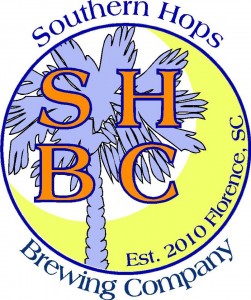
The bill — more formerly known in the Senate as S. 1230; H. 3512 in the House — would change the definition of a brewpub in the state. In the status quo, any brewery that serves food is considered a brewpub and their production is limited to 2,000 barrels per year. Considering Stone’s World Bistro & Garden Restaurant — the brewpub that the Escondido, Calif.-based company hopes will accompany its new East Coast facility — would far exceed that number, the bill aims to increase the brewpub production limit in the state to 500,000 barrels. It would also allow for brewpubs to sell their beer in kegs, bottles, and cans for off-premise consumption.
Sens. Luke Rankin (R), Brad Hutto (D), and Sean Bennett (R), alongside Reps. Todd Rutherford (D), Derham Cole (R), and James Merrill (R) will work to smooth out any differences in language of the proposed bill before adopting it and sending it along to Governor Nikki Haley for signature and passage.
Brook Bristow, a lawyer with Bradford Neal Martin & Associates who provides general counsel to the South Carolina Brewers Association, said he is hopeful the bill could pass, and take effect, within a month.
“Today is an opportunity to sit down and come to an agreement on what it’s going to say,” said Bristow. “I don’t think there’s any question that this is going to get [through].”
The bill passed the House last week and the Senate subsequently assigned it to the aforementioned conference committee to smooth out any potential kinks before pushing it forward.
Supporters of the bill have emphasized its potential to create jobs and attract Stone Brewing, which estimates it will invest upwards of $30 million to build the facility and bring nearly 400 jobs.
While Bristow is confident that the six lawmakers meeting today will resolve to move forward with the bill, it has faced some opposition, the most noteworthy of which coming from beer giant Anheuser-Busch InBev.
Attorney Amanda K. Wuenscher, of Mike Daniel & Associates, which represents A-B InBev, sent a letter to unnamed senators in the state, asking them to “non-concur with House Amendments” to the bill.
The letter addresses A-B’s concern that “the particular language” of the bill and “the manner in which the law would be changed would be detrimental to the current three tier system for alcohol distribution.”
“Anheuser-Bush’s primary concern is that this amendment erodes the current system that works so well,” she added, claiming the bill, as written, would “pick ‘winners and losers’ in the beer marketplace by singling out a specific entity to which this law would grant a competitive advantage over other brewers, distributors, and even retailers.”
As job creation has been a driving factor of the bill, the letter also claims the amount of jobs that would be created by a brewpub producing up to 500,000 barrels of beer per year has been inflated.
“[W]hile we understand there is the issue of potential jobs to think about, we are not sure how a brewpub producing 500,000 barrels a year will employ the 400 people folks seem to be claiming is the case,” the letter continues. “At Anheuser-Busch’s Williamsburg brewery, they produce 8.5 million barrels of beer per year. While this is far more than the five hundred thousand allowed for brewpubs in the proposed amendment, A-B’s Williamsburg brewery only employs 72 salaries employees.”
Bristow just calls that “the difference between big beer and craft beer.”
“We’re looking at creating more brewpubs, which require actually having servers, kitchen staff, things like that,” he said. “There’s no doubt you would create more jobs through craft beer than what Budweiser is saying.”

Nevertheless, he said, he supports the bill because it would allow him to sell his beer in kegs, bottles, and cans. Currently, he can only sell on-premise through his taps.
“I have people wanting to buy kegs for parties and private events, and even so much as doing festivals,” he said. “And I have to say no to everybody because it’s against regulation.”
He added, “I’m not really sure why you want to put limitations on small businesses. Those limitations don’t really do anything but hinder growth. It’s not like the increase in sales would do any kind of negative thing to the economy.”
Deaton, too, emphasized job creation.
“The distributors are going to need another driver too, because now he’s got five more accounts.”
Cameron Read, brewer and beverage director at the newly opened Edmund’s Oast in Charleston, supports the bill as well, as it would allow for the three-month old brewpub to distribute its beer.
“It’s exciting, the prospect of being able to distribute our beers,” he said. “It’s something — that’s a possibility that we never really thought would happen when we were conceptualizing this place.”

For his part though, Russell Farr, president of Greenco Beverage Co., a Greenville beer distributor, supports the bill.
“We have very antiquated laws regarding brewpubs,” he said. “Brewpubs are not allowed to sell their beer outside of their premises. They can’t choose a distributor and they can’t self-distribute. I think that law needs to be changed.”
Farr added that he supports the bill so long as it doesn’t circumvent the three-tier system, which he fully supports.
As written, the bill doesn’t change any laws regulating on-premise sales, rather it authorizes a brewpub to sell beer in previously illicit channels, such as through a wholesaler for off-premise accounts.
Even if South Carolina is unable to lure Stone Brewing to the Palmetto State, advocates of the proposed measure nonetheless claim it would enhance the state’s growing craft beer industry.
“Our state government has made a big deal in the past 10 years about creating jobs in the state, and they’ve certainly been open to craft breweries,” said Bristow.
Calls placed to Stone Brewing were not immediately returned.